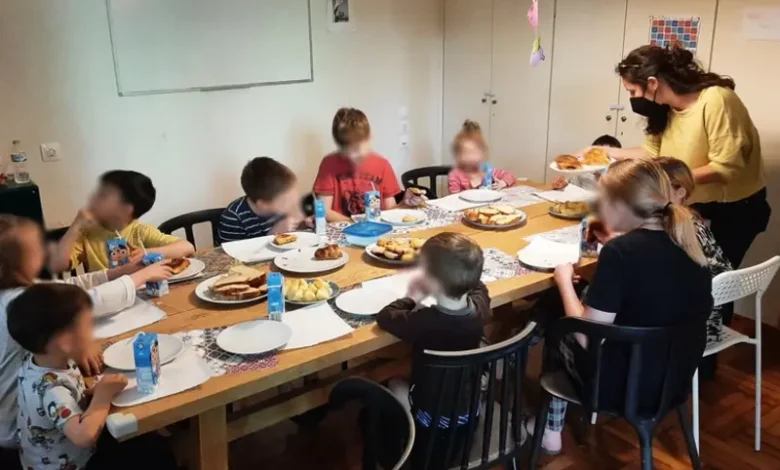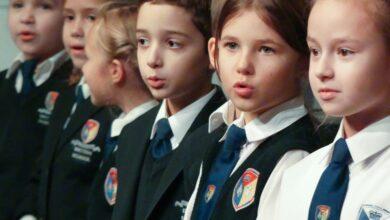Greece blocks return of Ukrainian orphans evacuated due to war

After the start of Russia’s full-scale invasion of Ukraine, thousands of children who lost their parents or were deprived of care continue to remain abroad — in asylums, shelters, temporary protection programs, which were created in the wake of humanitarian support. These children have become a symbol of salvation and at the same time hostage to complex interstate decisions, legal conflicts and conflicting interpretations of what constitutes the “best interests of the child” in the context of war. Ukraine is trying to return its citizens home — not to boarding schools, but to family forms of upbringing. But he is faced with the fact that even good intentions rest against the external will of other states. Among them is Greece, which in 2025 effectively blocked the repatriation of eight Ukrainian children from the city of Slavutych, evacuated in April 2022.
How and where were the children taken from Slavutych, and what happened to them in Greece
After the start of the full-scale invasion, Ukraine evacuated more than four thousand orphans abroad. At that time, Ukraine and the partner states did not understand how long the war would last and how long the children would live abroad. Evacuation was perceived as a temporary measure aimed at protecting the lives of children who were under threat. In 2022, there were no return mechanisms because no one knew if there would even be such a possibility. Later, when it became clear that hostilities could last for years, Ukraine began to develop a state strategy for the return of children who are temporarily abroad. In 2024, the government approved a resolution that does not provide for the return of children to residential institutions, but immediate placement in family forms of education. Thus, a legal framework was created for the gradual return of orphaned children to their homes. However, in practice, this process turned out to be much more complicated.
Some countries that accepted Ukrainian children in 2022 did not show readiness to release them. In April 2022, ten children from the “Family Comfort” orphanage were evacuated to Greece. They were placed in a shelter in Athens as part of the “Home Project” grant program, which at that time was funded by the Dutch government. This is what Yana Polehenko, the head of the orphanage, tells us. On April 26, 2022, the organization’s representatives announced on Facebook that the children had arrived at the Nisos shelter after a long and dangerous journey, and published photos.
There were no discussions about the terms of stay – the war had just begun, and everyone hoped for a quick end to hostilities. The children lived in the same house together with the accompanying employee of the orphanage. Over time, they began to attend Greek schools and kindergartens, and had Ukrainian school every Saturday. Leisure was also organized: those willing attended dance classes, boys – sports clubs.
However, for testimonies representatives of the Ukrainian diaspora, in particular Tetyana Petlyashenko, the situation turned out to be far from ideal. Her granddaughter went to the same school as Ukrainian orphans. The woman learned that seven children from Ukraine often come to school hungry, sick, and unkempt. According to her, the children asked other students for food. One girl had stomach problems, but she was forced to attend school even when she was sick.
Tetyana Petlyashenko noted that, despite trying to help the children, the shelter administration forbade communication with them. Food could only be delivered covertly. She emphasized: “The children walk around hungry, ragged. I have been watching this horror for two years. Perhaps this is a non-governmental institution, but there must be some kind of care.”
The head of the orphanage, Yana Polehenko, admitted that at the beginning there were difficulties with nutrition, related to adaptation to a different diet. In Greece, dishes from legumes prevail, which children are not used to consuming in such quantities. According to her, over time the children adapted. But the problems worsened when several refugees from the Middle East were moved into the house. This caused conflicts, children began to complain that their food was being taken away. It was then, as Polehenko notes, that active searches for ways to return children to Ukraine began.
Why Ukraine decided to return children home and what has been done for this
In 2024, representatives of the Ukrainian diaspora filed a complaint with the Office of the Ombudsman, pointing out the violation of children’s rights in the shelter. In particular, the appeal stated that some children stop speaking Ukrainian. At the same time, funding for the shelter stopped — the host organization officially announced the suspension of support. According to the head of the National Social Service Vasyl Lutsik, this is a sufficient legal basis for the return of children to Ukraine.
The organization “The Home Project” later found other sources of funding, but the Ukrainian side has already made a decision: the children must be taken away. By the spring of 2024, relatives managed to pick up two children. The remaining eight were to be returned on March 24, 2025. Adoptive families have already been found for them – according to the government decree, the return of children to boarding schools was not planned.
How and why Greece blocked the return of Ukrainian orphans
A day before the planned return, on March 23, the juvenile prosecutor of the city of Athens issued a decree on the temporary transfer of the children to the care of the Greek charity organization “The Home Project”. The document stated that it is necessary to take “comprehensive measures to assess and determine the best interests of minor children, in particular regarding the possibility of their repatriation.” It was stated that each child would remain in the shelter pending an individual decision based on a personal assessment.
The Ministry of Foreign Affairs of Ukraine and the Embassy of Ukraine in Greece reacted promptly: they tried to initiate a meeting with the Minister of Migration, sent an urgent verbal note to the Ministry of Foreign Affairs and the Ministry of Migration of Greece. At the same time, the Office of the Ombudsman turned to its Greek counterpart. However, no response was received.
During further negotiations at the level of deputy foreign ministers, the Greek side noted that the delay was of a “bureaucratic nature” and promised a positive solution. But as of June 2025, this decision has not been adopted.
The representative of the Greek Ministry of Foreign Affairs, in response to the appeal of Ukrainian diplomats, stated that “the issue of repatriation of children is assigned to the competence of the Greek justice authorities, which excludes the possibility of external influence on the situation.”
Ukrainian diplomats visited the children in the shelter. They noted that the children are in contact with their legal representatives in Ukraine, but they cannot return home yet. The Home Project itself stated that “until a permanent, individualized long-term solution is determined for each child, they will continue to be cared for in the shelter.”
Have similar cases happened in other European countries?
This is not the first time when a European state actually blocks the return of Ukrainian orphans. In August 2024, a court in Italy decided to leave 57 children from Berdyansk, who were deported after the start of the war, in the country. And at the end of May 2025, a similar situation arose in Austria. Senecura, the organization that ran the shelter, opposed the return of the 52 children, citing an “uncertain future due to the war.” After lengthy negotiations, the children were returned to Ukraine on June 1.
Vasyl Lutsyk notes that European partners perceive any shelling or threat in Ukraine as a danger for the entire country. They do not differentiate regions. According to Lutsyk, it is necessary to systematically explain that there are relatively safe areas in Ukraine, the government works, local authorities function, and children can be placed in families with compliance with all requirements.
How many children have been returned and how many are still waiting to be returned
As of the end of May 2025, according to the National Social Service of Ukraine, 3,129 orphans and children deprived of parental care were returned. Another 1,683 children remain abroad. Work on their return continues. But the process is not hindered by Ukrainian bodies, but by external obstacles – bureaucracy, lack of readiness of some states to recognize Ukrainian legal personality in matters of guardianship and interpretation of the concept of “best interests of the child”.
The story of eight children from the “Family Comfort” shelter, who have not been able to return from Athens to Ukraine for the third year, indicates a deeper problem than just technical failures in international cooperation. It is about blurred responsibility, inequality in positions, the difficulty of unifying concepts that at first glance appear to be common – safety, care, protection.
Ukraine has a return mechanism, resources, and willingness to accept children into families. But the right to implement this decision depends not only on the country of origin, but also on the readiness of the receiving country to recognize that a child can be happy not only in a European shelter, but also in his own home. Until this awareness becomes the basis of international interaction, similar situations will be repeated — to the detriment of children who remain between laws, between states, between promises and reality.





